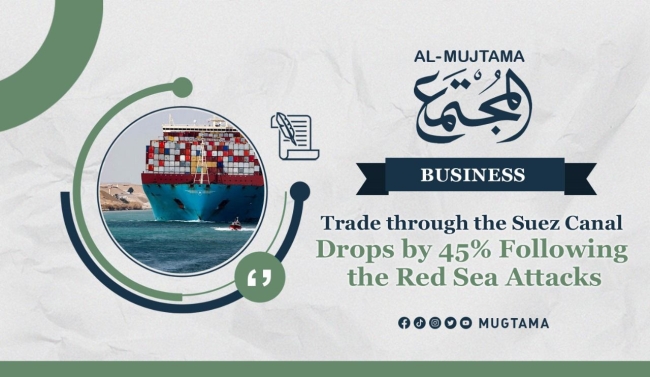Trade through the Suez Canal Drops by 45% Following the Red Sea Attacks Featured
The amount of trade passing through the Suez Canal has decreased by 45% in the past two months due to attacks by the Yemeni Houthi group in the Red Sea. The United Nations is concerned about the impact this could have on global trade.
Concerns about Trade Disruptions
Jan Hoffman, an official at the United Nations Trade and Development Organization (UNCTAD), expressed concern about the attacks on shipping in the Red Sea. These attacks, along with geopolitical tensions and climate change, are causing disruptions to trade.
Decrease in Ship Crossings
According to UNCTAD, the number of ships crossing the Suez Canal has decreased by 39% compared to the beginning of last December. The weekly number of container ship crossings has also dropped by 67% year on year.
Reasons for the Attacks
The Houthi group has been targeting ships in the Red Sea and the Gulf of Aden in solidarity with the people of the Gaza Strip. This is in response to the Israeli war that began on October 7th.
Impact on Global Trade
The disruptions in the Red Sea are a cause for concern because more than 80% of global trade in goods is transported by sea. Other important trade routes are also under pressure.
Continued Decline in Shipments
Container shipments through the Suez Canal have decreased by 82% in the week ending January 19th compared to early December. Liquefied natural gas shipments have also declined, while dry bulk cargo shipments have seen a smaller decline. Tanker traffic for crude oil has increased slightly.
Significance of the Suez Canal
Between 12% and 15% of global trade and between 25% and 30% of container traffic pass through the Suez Canal. The decrease in trade volume has had a significant impact on the canal's revenue.
Concerns about Food Prices
Disruptions to major trade routes, like the Suez Canal, can affect global supply chains. This can lead to delays in the delivery of goods, increased costs, and the risk of inflation. The United Nations is particularly concerned about the impact on global food prices.
Impact on Consumers
The increase in shipping prices may eventually affect food prices. Higher transportation costs have already contributed to price increases since the war in Ukraine. However, the impact on consumers in developed countries may take some time to be felt.
Source: Agence France-Presse + Reuters


